Carter Conference
Shifting Momentum in African Agriculture through Research and Technologies:
SMART Agriculture | SMART Growth | SMART Kids
December 10 and 11, 2020
- Co-hosted by the University of Florida's Center for African Studies & the Feed the Future Innovation Lab for Livestock Systems
- Download this agenda (PDF): Carter Conference Program
Recording of Day 1 (from Zoom):
Recording of Day 2 (from Zoom):
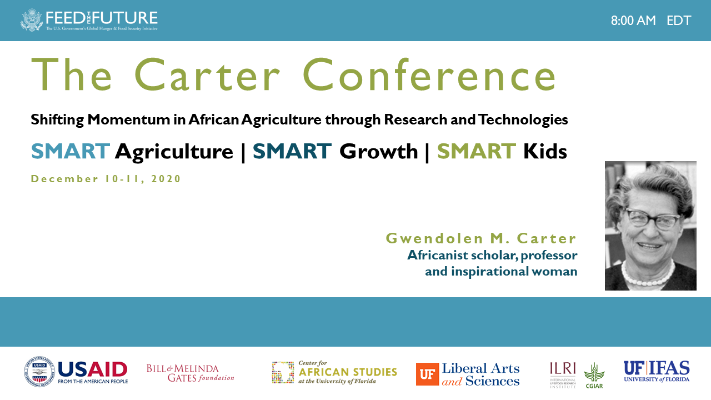
The 2020 Carter Conference explored how momentum is shifting in African agriculture through research and technologies to improve resilience, livelihoods, and nutrition. The keynote presentations were given by Isaac Sesi, Co-founder and Team Lead of Sesi Technologies, who has been named one of MIT’s Technology Review’s “35 Innovators under 35” and by Ayo Oduntan, CEO and Group Managing Director, natnudO Group, Nigeria. The story of his company’s strategic path to success has been studied by the Harvard Business School.
Well-nourished populations, especially women and children, are the central focus of efforts to nurture development and increase resilience of households and communities. With more than one in four of its 856 million people undernourished, Sub-Saharan Africa remains the world’s most food-insecure region. The Innovation Lab for Livestock Systems is focused on rural smallholder famers in the six African countries where it works. In these countries, 80% of people rely on livestock for their livelihood, which presents important challenges as well as opportunities. The Lab adopts an inter-disciplinary and applied research approach aiming to develop livestock production to improve human nutrition and resilience and ultimately contribute to strengthening the social and institutional capacities in these countries.
This virtual conference focused on the role that nutrition, livelihoods and resilience play in societal development. It did so by acknowledging the close relationship between good nutrition, inclusive and sustainable agricultural-led economic growth and strengthened resilience among people and natural systems. We explored this further through the following conference subthemes:
- Integrated agricultural systems
- Markets and policies
- Innovations, behavioral change, and communication across animal source food value chains
- Education and youth involvement.
The conference approached the above mentioned themes from multiple angles to generate ideas that lead to well-nourished populations.
Keynote I
8:00 am to 9:00 am on Thursday, December 10, 2020
Ayo Oduntan, CEO and Group Managing Director, natnudO Group, Nigeria.
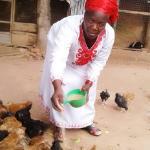
Keynote 1: Noiler: Research and innovation improve nutrition, profit and social impact in West African backyards
Session I: Integrated Agricultural Systems
9:00 am to 10:30 pm on Thursday, December 10, 2020
Resilience of communities and households, in particular farming households, relates to their ability to bounce back after a stress event, whether the stress is related to weather, civil unrest, political change etc. Given the complexity of the problem, there is a need for an integrated systems approach that explores aspects at the farm level but also at meso (market/ community) level, reinforcing the capacities of different parts of the agricultural (livestock) system and value chains to allow for sustainable agricultural-led economic growth and improved nutrition.
Chair: Karen Garrett | Preeminent Professor, Plant Pathology Department, UF
- Polly Ericksen | Program Leader, Sustainable Livestock Systems Program, ILRI Nairobi. “The critical importance of livestock in integrated crop livestock systems”
- Trinity Sandra Ndlovu | Doctoral candidate, University of Nairobi, Kenya and Zimbabwe. “Modeling the effects of tenure reform induced grazing access alterations on rangeland productivity and household wellbeing in pastoral communities of Dirre grazing unit of the Borana in Ethiopia”
- Kwame Ogero | Doctoral candidate, International Potato Center, Tanzania. "Developing Sustainable Seed Systems for Delivery of Orange-fleshed Sweet potato in Africa"
- Beatrice Ekesa| Research Scientist, Bioversity International, Uganda. “Banana-based systems: potential to support resilient farms and enhance access to healthier diverse diets”
Session II: Markets and Policies
10:40 am to 12:15 pm on Thursday, December 10, 2020
Improving access to agricultural (livestock) markets particularly for women can significantly increase household resilience and improve household nutritional status as income earned by women is used primarily for family needs such as food, health services and education. In relation to this, national and regional policies supportive of the livestock sector including commercialization of livestock and ASF are critical for resilient systems. Economic analysis of various initiatives targeting improving resilience will allow for the development of various scenarios of how livestock systems may perform under different parameters. Scenarios from the Sahel region and some Eastern African countries are being elaborated and will be able to inform decisions in these as well as other countries.
Chair: Renata Serra | Senior Lecturer, Center for African Studies, UF
- Saweda Onipede Liverpool-Tasie | Associate Professor, Dept. of Agricultural, Food, and Resource Economics, Michigan State University, East Lansing, Michigan, USA. “Towards relevance in scholarship for food security and poverty reduction within Africa’s food systems transformation”
- James Rao | Senior Scientist, Agricultural Economist, ILRI Kenya. “Extending the frontier of dairy production in Kenya: Technology transfer and institutional strengthening”
- Samantha Padilla | Research Agricultural Economist, USDA Economic Research Service. “Cold Storage Investment Decisions under Energy Uncertainty: The Case of Commercial Poultry Farming in Nigeria”
- Emerta Aragie | Research Fellow, International Food Policy Research Institute, Washington D.C., USA. “Alternative national development scenarios and their implications for the livestock system in Ethiopia”
Keynote II
8:00 am to 9:00 am on Friday, December 11, 2020
Isaac Sesi, Co-founder and Team Lead of Sesi Technologies, Kumasi, Ghana: "Creating Sustainable Food Systems: The Role of Agritech and the Youth"
Session III: Innovations, Behavioral Change, and Communication across Animal Source Food Value Chains
9:00 am to 10:30 pm on Friday, December 11, 2020
Adoption of new practices and technologies developed by researchers often remains low due to a variety of reasons including lack of awareness and understanding of underlying social and cultural factors. There is need for sharing approaches that have worked and asking the questions of what additional research is needed to improve adoption.
Chair: Sarah McKune | Assistant Professor, Department of Environmental and Global Health and the Center for African Studies, UF
- Carmen Jaquez | Senior Advisor, Livestock and Agriculture, Mercy Corps, Portland, Oregon, USA. "Designing action research to understand drivers and barriers to sustained adoption of milk production enhancing technologies and techniques for the drylands of Kenya"
- Valerie Flax | RTI, Chapel Hill, North Carolina, USA. "Girinka livestock asset transfer program and child nutrition in Rwanda"
- Romain Kenfack | Country Director Burkina Faso, SELEVER/Tanager. “Women’s Poultry, Income, and Nutrition Project – SELEVER”
- Yewande Addie | PhD student in College of Journalism, UF. ”Prioritizing Theory and Health Communication for Nutrition Related Behavior Change: A Post-hoc Assessment of the Success of the Un Oeuf Project in Burkina Faso”
Session IV: Education and Youth Involvement
10:40 am to 12:15 pm on Friday, December 11, 2020
More than half of global population growth between now and 2050 is expected to occur in Africa. Youth education and their involvement in all parts of agricultural (and livestock) systems will be key to sustainable agricultural-led economic growth that will be able to withstand shocks. This means more development of specialists on agriculture and or livestock related fields but also areas such as entrepreneurship to allow scaling of technologies and approaches.
Chair: Chris DeCubellis | Dairy/animal sciences 4-H state specialized agent, Statewide 4-H Youth Development Program, UF/IFAS Extension
- Evelyn Ohanwusi | Training and Partnership Coordinator, Young Africa Works-IITA Project., International Institute for Tropical Agriculture, Abuja, Nigeria. “Youth Involvement in Agricultural Transformation:The IITA Youth Agripreneurs”
- Sarah Sahlaney | Gender director. Tanager, Washington D.C., USA. “Considerations in Engaging Youth in Agriculture”
- Bagnan Salifou | Senior Research Manager, Mercy Corps, Zinder, Niger. “About the Zinder Matassa Youth Innovation Organization”
- Hunter Williams | Agripreneur and UF 4H participant, Florida, USA. “Florida 4-H Sowing Seeds for a Career in Agriculture”
Speakers |
|
|
Dr. Ayoola Oduntan is the Group Managing Director of natnudO Foods, Amo Farm Sieberer Hatchery Limited, Amo Byng Nigeria Limited and Diversay Solutions Limited. He is the immediate past National President of the Poultry Association of Nigeria, a position he held for 5 years. Dr. Ayoola Oduntan is passionate about the Veterinary profession and food security in West Africa and has a genuine resolve to win the battle against poverty, malnutrition and food insecurity in rural areas. Amo Farm Sieberer Hatchery, under his leadership, is the first pure line breeding company in Africa; producing the exceptionally performing dual purpose bird, Noiler. Noiler has been used to reverse protein malnutrition in over 280,000 rural households across the 36 States in Nigeria, the Federal Capital Territory, Abuja and 5 West African countries. Amo Farm Sieberer Hatchery is also a leader in Day Old Chick production and natnudO Foods is a top food processing protein company with product range that include premium low-fat chicken (frozen and ready to eat), Super eggs, high quality ranched beef and fish. In 2019, a case study was written about Noiler by Harvard Business School and was one of the leading case studies presented at the January 2020 edition of Agribusiness Seminar of the School. Dr. Ayoola Oduntan led the team from Amo Farm Sieberer Hatchery as the protagonist. He is happily married to Mrs. Wuraola Oduntan and are blessed with children. |
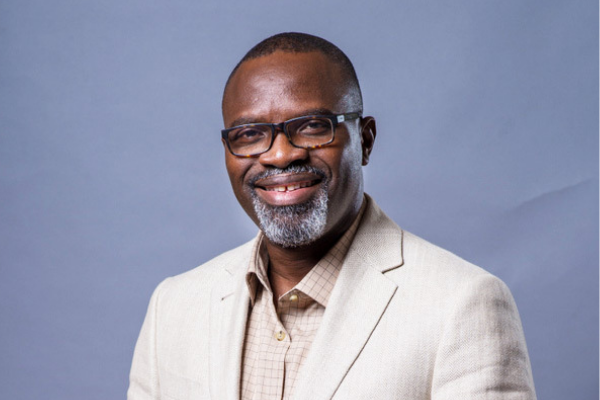 |
|
Kwame Ogero is a Regional Research Associate at the International Potato Center (CIP) with a focus on enhancing farmers’ access to quality planting material for sweet potato. He is involved in efforts geared towards developing sustainable seed systems for sweet potato in Tanzania. His research is focusing on developing crop-specific models and decision support systems for understanding and managing seed degeneration in sweet potato. This includes identifying scenarios whereby on-farm management, resistant varieties, and seed replacement management strategies would be most optimal. Kwame is also interested in understanding epidemiology of sweet potato viruses and how it will vary under different climate change scenarios. He serves on the Committee of the International Society for Tropical Root Crops - Africa Branch (ISTRC – AB) as the East Africa Representative. Before joining CIP, Kwame worked at the International Service for the Acquisition of Agri-biotech Applications (ISAAA) AfriCenter as a Program Assistant and Liaison Officer for the Open Forum on Agricultural Biotechnology in Africa (OFAB), Kenya Chapter. He holds a MSc. degree in Agronomy from Kenyatta University and a BSc. Degree in Biochemistry from the University of Nairobi, both in Nairobi, Kenya. In addition, he is a PhD candidate at Wageningen University & Research (WUR), Wageningen, Netherlands. |
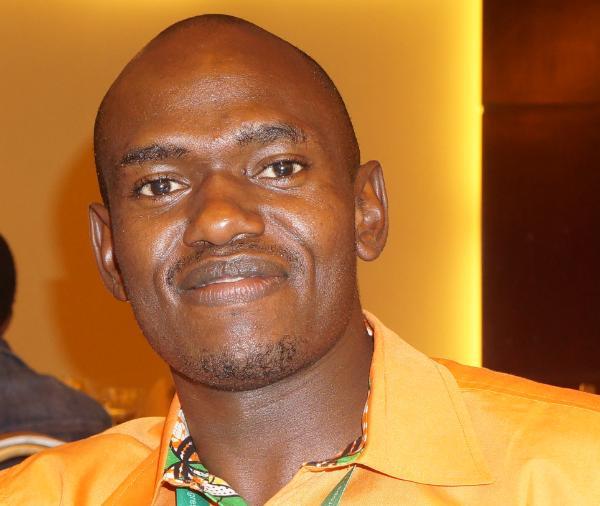 |
|
Dr. Ekesa Beatrice is a scientist at the Alliance of Bioversity International and CIAT and the Country Representative of the Alliance in Uganda. Beatrice’s specialty is in Human Nutrition. She has over 15 years of experience in Research and Development, mainly assessing the existing farming and food systems and working with relevant multi-level stakeholders to identify avenues of optimizing the systems for better contribution to enhanced nutrition outcomes in Eastern and Central Africa. Since late 2019, Beatrice has been expanding her geographical scope of work to the Pacific (Solomon Islands and Vanuatu), Oceania (Samoa and Tonga) and Asia (Vietnam). Beatrice has a PhD in Foods and Nutrition from Kenyatta University-Kenya in collaboration with Katholieke Universiteit Leuven-Belgium and CIRAD-Montpellier-France. Her Msc is on Community Nutrition and Development from Maseno University, Kenya. |
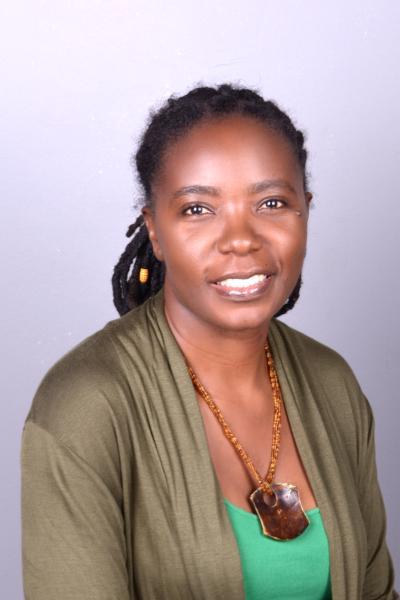 |
|
Saweda Liverpool-Tasie is a tenured associate professor in the Department of Agricultural, Food, and Resource Economics at Michigan State University. Her research focusses on emergent issues related to smallholder productivity and welfare within dynamic and transforming food systems in sub Saharan Africa and alongside poorly functioning markets in the region. She has extensive experience on program evaluation using various quantitative methods in Africa. She has designed, implemented and analyzed data from field surveys across Africa and has looked at gendered access to land and other inputs in Africa. Dr. Liverpool-Tasie's research work covers Nigeria, Tanzania, Ethiopia, Gambia, Niger, Malawi and Zambia. She has led several efforts on designing and implementing capacity building projects in Africa. Currently Dr. Liverpool-Tasie is the Principal investigator of the USAID funded Feed the Future Nigeria Agricultural Policy Project which strives to support the policy process in Nigeria with evidence based on scientific research. She is a member of several multidisciplinary teams focused on issues of food security, food safety and value chain transformation in developing countries. |
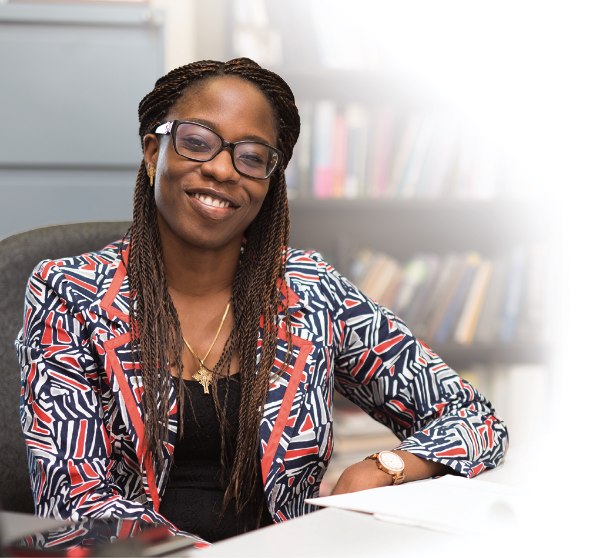 |
|
Elizaphan James Oburu Rao is a Senior Agricultural Economist working under the Policy, Institutions and Livelihoods program at the International Livestock Research Institute (ILRI) with research interest in adoption and innovation pathways, impact assessment and, applied micro-economic analysis. James applies micro-econometrics among other analytical tools to evaluate how agricultural technologies and institutional innovations deliver development outcomes for smallholder rural households. He has experience in market systems analysis, with a special focus on how market systems can function better for the poor rural households in the South. Besides research, James currently coordinates dairy activities under two Feed the Future development initiatives - Kenya Crops and Dairy Market Systems and Accelerated Value Chain Development, both aimed at expanding opportunities for dairy development in pre-commercial dairy areas in Kenya. James holds a PhD in Agricultural Economics from University of Goettingen, an MSc in Agricultural Economics from University of Hohenheim, an MSc in International Cooperation Policy from Ritsumeikan Asia Pacific University and a BSc in Agricultural Economics from Egerton University. |
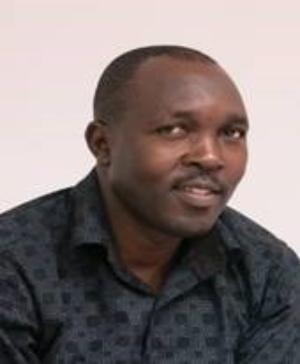 |
|
Samantha Padilla obtained her Ph.D. in Agricultural, Food, and Resource Economics from Michigan State University in 2019. She joined ERS as a Research Agricultural Economist for the Animal Products and Cost of Production Branch in Markets and Trade Economics Division upon the completion of her doctoral studies. Her research interests include production economics, farm input markets, technology adoption, agricultural policy, and economic development. Samantha’s dissertation research explored the implications of high feed costs and electricity volatility for broiler farm profitability and investment decisions in Nigeria. |
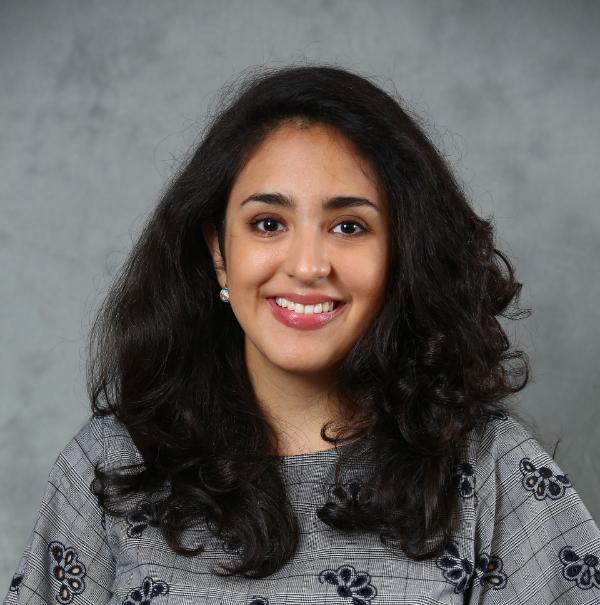 |
|
Emerta A. Aragie is an economist whose research focuses on computable general equilibrium based ex-ante analyses of the impacts of investment and agricultural and livestock sector policies in developing countries on income distribution, poverty and food security. Past research focuses on evaluating the consequences of climate change on internal migration, prioritizing public investment policies, and analyzing agricultural trade. His research focus on Sub-Saharan Africa and has involved in studies on Ethiopia, Ghana, Kenya, Malawi, Rwanda and Uganda. Before joining IFPRI in 2018, Emerta worked as an Economic Modeler at Food and Agricultural Organization (FAO) from 2015. |
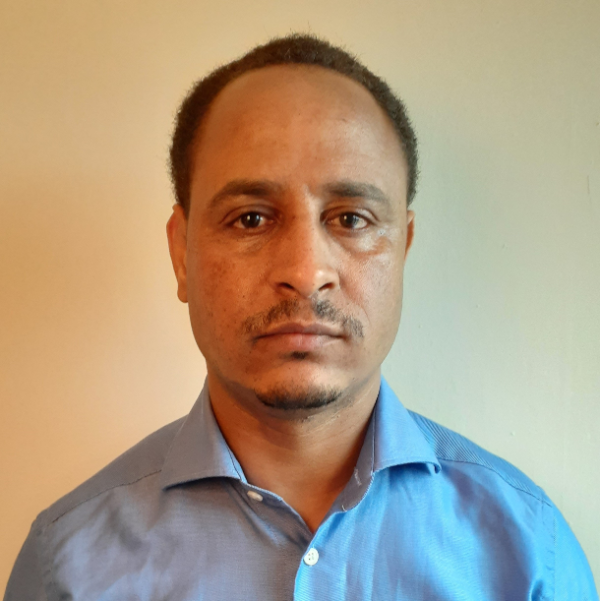 |
|
Isaac Sesi is an entrepreneur and an engineer passionate about leveraging technology to solve some of the world's biggest challenges while inspiring young people to solve problems too. He is the founder and CEO of Sesi Technologies, a Ghana-based agri-tech startup that develops affordable technologies to help farmers and agribusinesses reduce losses and increase productivity. Isaac has been recognized as one of the world’s top Innovators Under 35 by the MIT Technology Review along with the founders of Google and PayPal, and as one of 50 most influential young Ghanaians. He has had the opportunity to showcase his work to several heads of states including the president and vice president of Ghana, the Chancellor of Germany Angela Merkel and Prince Charles of Wales and has addressed hundreds of students, researchers and professors in several top universities across the world. His passion for STEM led him to cofound Nsesa Foundation, a non-profit whose vision is to inspire an Innovation revolution in Africa and get young Africans solving problems using science and technology. Their programs have trained hundreds of students globally and have reached over 300,000 people across the world since 2013. |
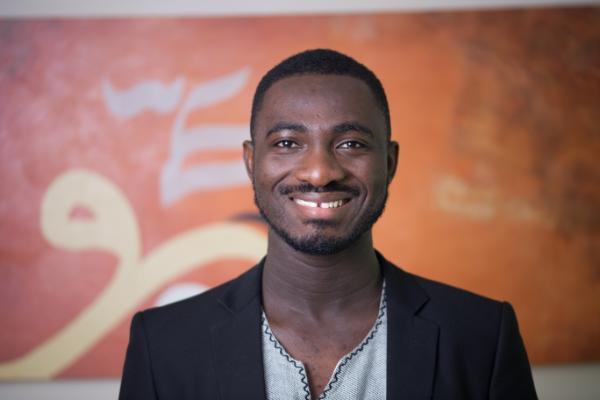 |
|
Carmen Jaquez is the Senior Advisor for Livestock & Agriculture within the Technical Support Unit of Mercy Corps. She joined Mercy Corps in May 2018 and is based at agency’s headquarters in Portland OR. Mercy Corps’ current humanitarian and development portfolio addressing livestock and pastoralist systems is approximately $260 million. At Mercy Corps, Carmen leads development and execution of the agency’s global and regional livestock strategies, manages the livestock systems learning agenda, designs new programs and provides in-country and remote technical support to programs. Prior to joining Mercy Corps, Carmen was the Practice Area Manager for Dairy, Livestock and Environment for Land O’Lakes, International Development Division based in Nairobi Kenya. While at Land O’Lakes, Carmen focused on development of dairy and livestock market systems and the drivers behind low adoption rates of improved technologies and techniques, integrated approaches to crosscutting issues (climate change, gender and nutrition) and the relationship between smallholder livestock/dairy production, marketing of animal source foods and household nutrition. She joined Land O’Lakes in 2007 as a Mickey Leland International Hunger Fellow working in both the Nairobi and Washington DC offices. As a Fellow, Carmen assessed livestock development activities being implemented in the arid and semi-arid regions of the Horn of Africa with special attention to approaches to livestock marketing and rangeland management. She studied Fisheries & Wildlife Management and Biology at the University of Missouri and Applied Economics and Ecological Economics at the University of Vermont. |
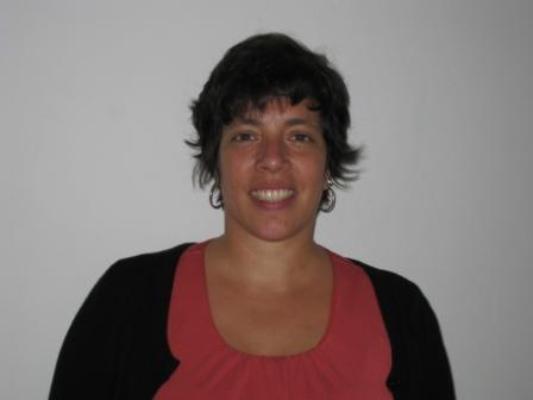 |
|
Valerie Flax is a nutrition interventionist and evaluator in RTI International’s Food, Nutrition, and Obesity Policy Research Program. She has 20 years of experience implementing public health programs and conducting research in low- and middle-income countries. Her research uses a mix of ethnographic, observation, and epidemiologic methods and focuses on 1) evaluation of large-scale nutrition programs, 2) design and testing of innovative community-based interventions to improve infant and young child feeding practices, and 3) implementation research related to maternal and child nutrition programs. Dr. Flax earned her PhD in epidemiology at the University of Tampere in Finland and her MPH in health behavior at the University of North Carolina at Chapel Hill. |
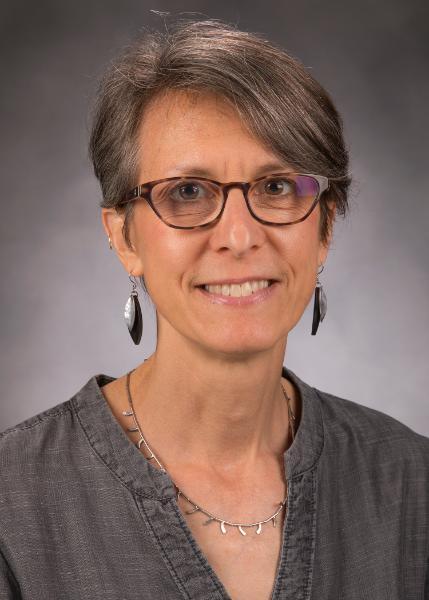 |
|
Romain Kenfack is the SELEVER Project Director for Tanager and for “Improve the nutrition status of women and children through an integrated strategy that increased household income and improves access to poultry market.” Romain also leads the SELEVER Project to leverage the entire poultry sector in Burkina Faso – including government entities and the private sector – to increase incomes for women, support women’s inclusion in the poultry sector, and improve community access to nutritious and diverse foods. SELEVER approach explicitly targets women for its economic strengthening work. SELEVER will impact more than 450,000 individuals with a total estimated income generated of $43 million over ten years. In his work across Africa, Romain provided oversight and support to nutrition, livestock, women’s empowerment, agriculture and economic development programs. He specializes in cultivating relationships among private sector, non-government organizations, and local government that build consensus and achieve tangible results to local communities. |
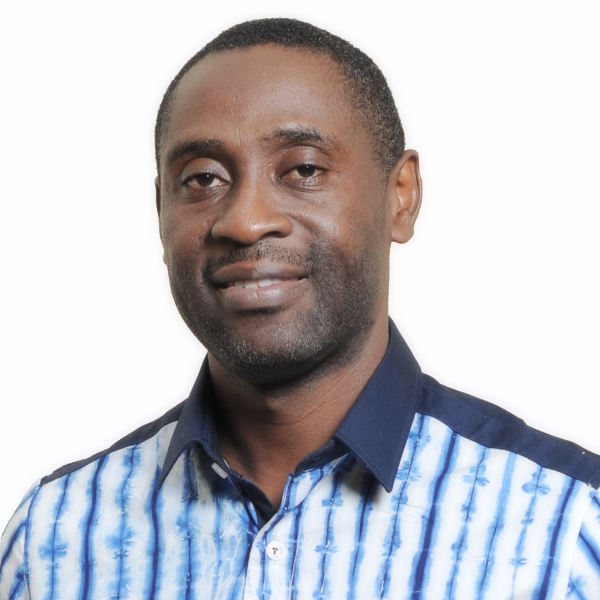 |
|
Yewande O. Addie is a fourth-year doctoral student in the University of Florida’s College of Journalism and Communication. Her research interests revolve around health messaging, cultural identity, and narrative storytelling. She is a holds a B.S. in journalism from Florida A&M University, a master’s in liberal studies history from Clayton State University, and an MPH from UF. Yewande's research interests revolve around the convergence of identity, cultural communication and health. The Atlanta native is a Fulbright grantee, former Peace Corps volunteer, and Obama Presidential Appointee. |
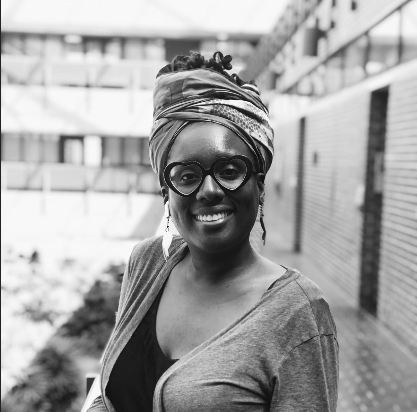 |
|
Dr. Chris DeCubellis grew up on his family’s farm in Pasco County and attended Gulf High School in New Port Richey. Chris went to UF majoring in Animal Science, then earned a Master’s and PhD in Agricultural Education and Communication. Chris has worked in Extension for over 20 years as a county agent in Collier, Hillsborough, Marion, and Gilchrist Counties, has served as Associate State 4-H Program Leader, and most recently as the 4-H State Specialized Agent for Dairy/Animal Science. Chris lives on a farm in Archer, Florida with his family, where they raise commercial cattle, horses, vegetables, and fruit. |
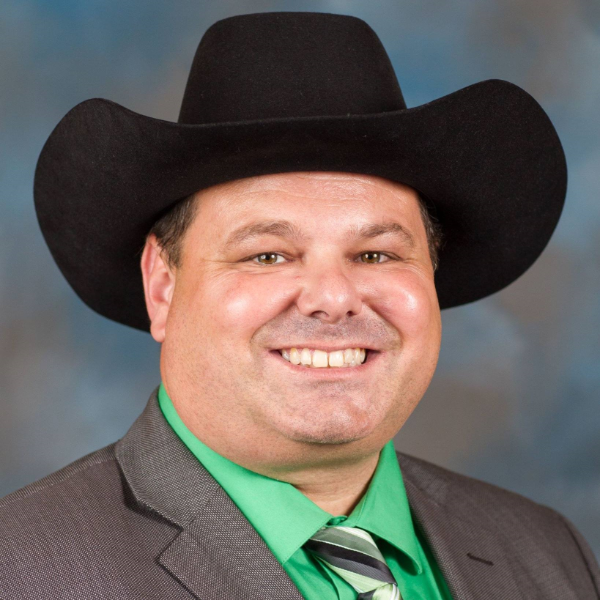 |
|
Evelyn Ohanwusi is currently the Training/Partnership Coordinator for the Young Africa Works- IITA project in collaboration with the Mastercard Foundation. Until July 2020, she coordinated the youth component of the Technologies for African Agriculture Transformation (TAAT) program. She holds an MBA in Agribusiness; she began her career as a pioneer and founding member of the IITA Youth Agripreneurs (IYA) program at IITA Ibadan; and has since become a strong advocate for youth and women in agribusiness. IYA is a youth in agribusiness program that was established to address the issue of widespread youth unemployment and to provide a platform that propels youth towards self-employment and job creation in agriculture through training and mentoring. The model has gained recognition and was adopted by the African Development Bank in the implementation of the Pan-African Youth in agribusiness program- ENABLE Youth program. In June 2019, the program was recognized as an innovation that strengthens the role of youth (under 35) in agriculture and food systems and thus awarded the International Innovation Award by the Food and Agriculture Organization (FAO) and the Government of Switzerland during the 41st FAO conference. |
 |
|
Sarah Sahlaney is Director of Gender & Social Inclusion at Tanager, leading Tanager’s gender and social inclusion work across all projects and partnerships. Sarah has worked with USAID, Bill & Melinda Gates Foundation, and World Food Programme activities to promote gender integration, women’s empowerment, and social and behavior change. She has expertise in designing trainings and curricula, conducting research, and developing behavior change and gender strategies. Sarah holds an M.S. in community and regional development with a concentration in gender studies and an M.S. in international agricultural development, both from the University of California, Davis, as well as a B.S. in foreign service from Georgetown University. |
 |
|
Bagnan Ousmane Salifou is Senior Research Manager and sub-award manager at Mercy Corps Niger. It testifies to a strong experience of over seven years in entrepreneurial agriculture, market development and that of value chains. In addition, he had conducted several research studies on the profitability of peri-urban breeding for the benefit of small producers. |
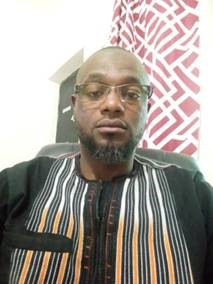 |
|
Hunter Williams, 17 is a senior at Union County High School in rural, Lake Butler, FL. He was been a member of 4-H for 11 years and has held multiple leadership positions including county and district council president, as well as Florida 4-H Sergeant at Arms. In 2019, Hunter was selected to serve as an inaugural Florida 4-H Livestock Ambassador. He uses the knowledge he gained from his course at Texas A&M University to educate youth and consumers across the state. Hunter was a featured youth panelist on the 2019 National 4-H panel in conjunction with the CADE Museum on Feeding the Future, Sustainable Food Systems. During the COVID-19 pandemic, Hunter took the initiative to “Save Florida Farms” through a business offering produce boxes delivered locally to his community to assist the farmers with moving their crops. During the start of the pandemic, many farms were experiencing large scale waste from the lack of restaurants and tourist attractions open in Florida, Hunter executed a plan to sell some of the fresh produce to consumers to aid the agriculture industry in the state. After graduation, Hunter plans to attend Hutchinson College in Kansas where he has been offered a scholarship for livestock judging. |
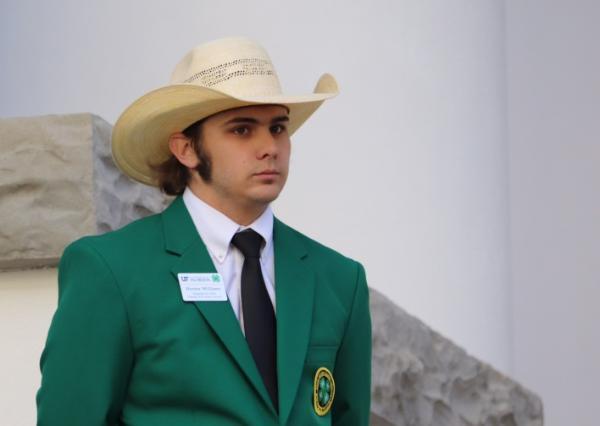 |
Feed the Future Innovation Lab for Livestock Systems is part of Feed the Future





